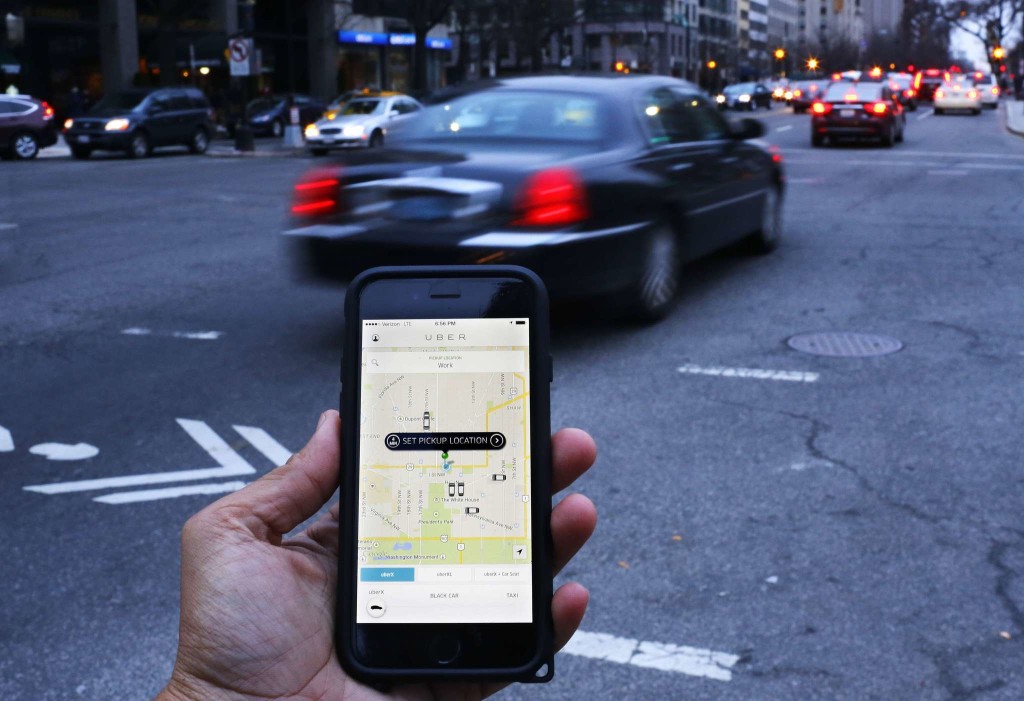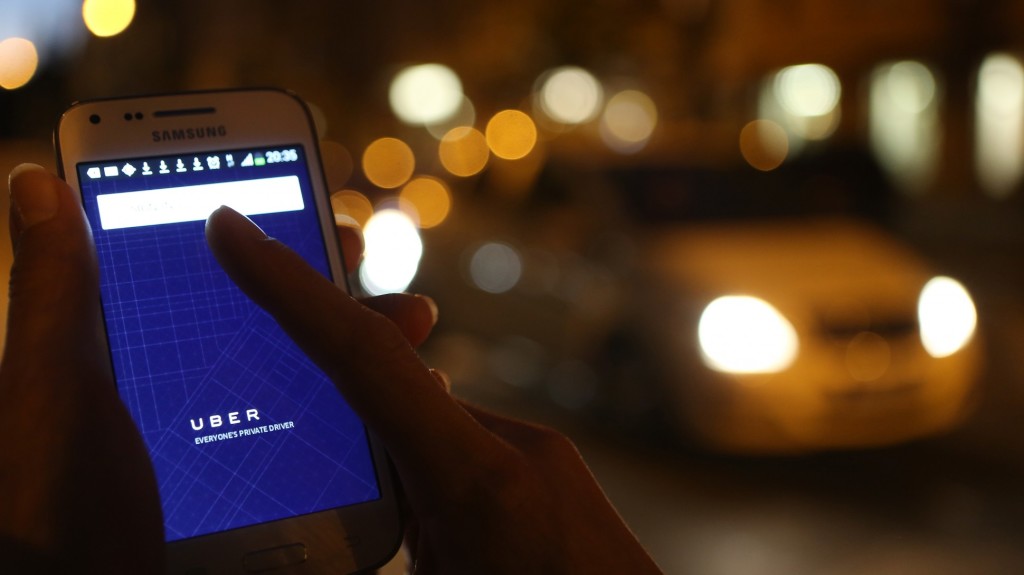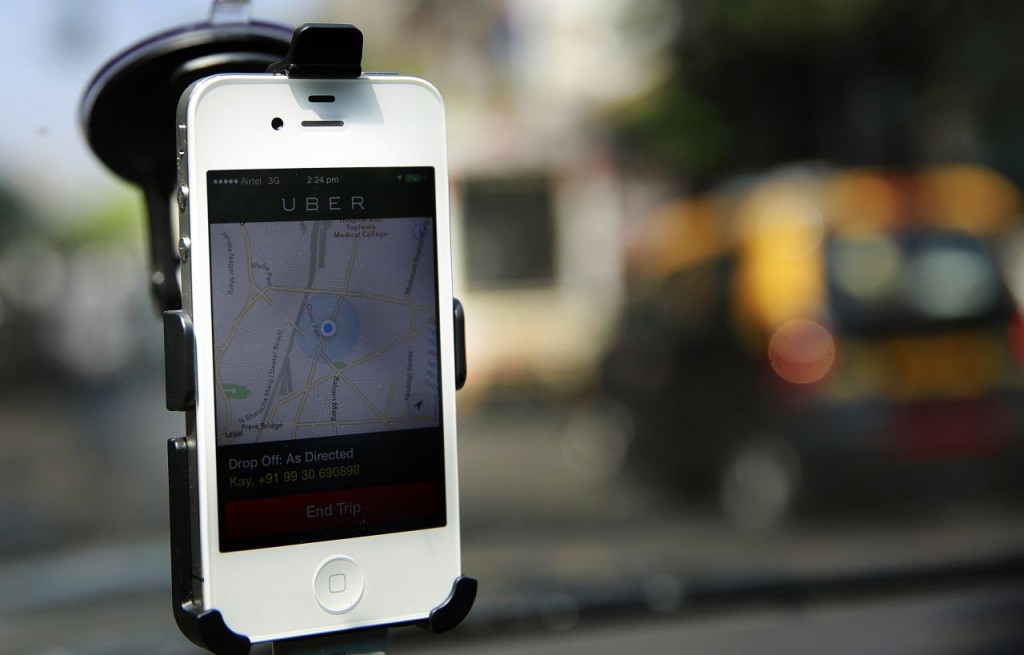Will Lochamy: An Uber success?

Can you believe we’ve made it? I mean, it’s a miracle that we’re still here! Think about it … Y2K, quicksand, Zima, the Mayan calendar, and even Uber. We’ve survived, folks! Chicken Little’s whole “acorn story” was more convincing than Birmingham City Councilor Kim Rafferty’s anti-Uber charade. While supposedly only representing the community, she appeared on a national propaganda video produced by the Taxi, Limousine, and Paratransit Association. Speaking about Uber, Henny Penny… I mean Rafferty, said, “Just because you need a ride, doesn’t mean you have to be abused or taken advantage of.” It get’s better. She actually said, “We continue to stand before a millennial groundswell that is manipulated and tantalized by shiny, newfangled app gadgetry, convenience, and self-service with no concept of public service and no care for public safety. Social media may be pretty, but it will not serve you well when the battery goes dead.” I’m assuming she thinks we should stop driving cars as well, because, you know … they might run out of gas. Thank goodness our batteries haven’t died. We’ve now been using Uber for over seven months in Birmingham. That’s right; the scary, unregulated, bogey man-driven, rideshare service that everyone warned us about. Close your eyes, because here is what people have experienced: People from 45 different countries have used Uber in Birmingham. “Since Uber came along, I’ve personally witnessed a complete transformation in the landscape of transportation in Birmingham. Where there are STILL no cabs, we now have Uber. Our customers now have a reliable, affordable, safe option to get around when they make the choice to not drive,” said Cliff Atkins, owner of 41st Street Pub and Rowe’s Avondale. “Uber is a valuable service and safety enhancement to our citizens. There is no other way to see it unless you’re serving some other end.” Birmingham City Councilor Sheila Tyson said, “We haven’t had any complaints. If they had complaints, trust me, they would blow our phones up.” “There are no longer lengthy wait times. Also, an added bonus has been the paper trail Uber leaves. Knowing exactly when you rode, who drove you, and the route you took home is extremely helpful to our customers,” said Joseph Hoskin, general manager of Innisfree Irish Pub. The average wait time for an Uber in Birmingham is four minutes. “The first six months (with Uber) have been all we had envisioned: creation of jobs, decreased incidents of DUI, and satisfied out-of-town visitors who have more reliable transportation to and from the Birmingham airport. It’s an all-around success story for our city,” said Hoover City Councilor John Lyda. It took Birmingham 18 long months to get past the red tape. I don’t want to think about the negative things that might have happened during that time without ridesharing. The proof is in the pudding. I stood before an Alabama State House in 2015 that didn’t know what Uber was. There’s no excuse now. Drinking and driving, reliable transportation, and outdated thinking isn’t a just a Birmingham thing. It’s time to take this out of the local municipalities’ hands and pass statewide legislation. Oh, and thanks to the drivers. You guys and gals have been on your best behavior. Let’s keep it that way. We’d hate for one of you to mess it up for the rest of us. Will Lochamy is co-host of the radio show, “Oh Brother Radio” on Birmingham Mountain Radio (107.3FM).
Uber in Birmingham does not mean rehashing old regulations, supporters say

Birmingham insists they want Uber, but the road is not yet fully clear for the popular ridesharing service. Despite assurances from the Birmingham City Council that Uber is welcome, demonstrated in the city’s latest video update, requirements the company must first meet all “safety regulations” could become a roadblock to Uber’s expansion in Birmingham. As outlined in a document to the city’s legal department, obtained by ALToday.com, Uber’s primary concerns include outdated insurance requirements, redundant background checks and excessive licensing and permitting in jurisdictions that regulate “Transportation Network Companies.” After last week’s Committee of the Whole meeting, Birmingham’s proposed regulations – required as a condition of operations in the city – are what Uber officials call a simple rehash of existing transportation codes passed in 2014. Those regulations continue to lump Uber in the same category as traditional taxi services. “The regulatory proposals we’ve seen thus far from City Officials neither reflect the ridesharing business model nor appear to be a serious attempt to bring this option to Birmingham,” an Uber representative told Alabama Today. “We’ve shared our position on three issues that we must come to an agreement on before we’re able to offer ridesharing in the Magic City.” At issue are several sections in latest draft, which reference the 2014 codes. For example, as noted on the second page of the draft, “Vehicles operating under the auspices of a Transportation Network Company will be treated as taxicabs for the purpose of determining all licenses and fees required under this Code.” That passage is directly at odds with Uber’s three central priorities, which they say must be addressed before the company (as well as rival Lyft) can provide convenient and affordable transportation to Birmingham residents. Coincidentally, the same three issues – licensing, background checks and insurance – are top concerns laid out by City Council President Jonathan Austin this summer. For other municipalities that passed pro-ridesharing regulations, including Mobile, allows a TNC to apply for a “master license” from the city. This permits drivers to be registered with Uber, not individually and separately with the city. Such rules supports Uber driver/partners, who see flexibility in hours as the most appealing feature of a ridesharing career. According to estimates, 50 percent of all Uber drivers in the United States average less than 10 hours per week on the road. Eighty-seven percent say that “being their own boss” is a significant factor in their decision to work with Uber. Requiring individual licensing would, in effect, have a chilling effect on attracting quality drivers. As for insurance, since most Uber drivers use their vehicles for personal business and not ridesharing, a majority of vehicle use is already covered under the drivers existing personal auto policy. Uber offers a contingent insurance policy – exceeding the state’s personal insurance minimum requirements – which protects drivers while they are active in the system, but not yet picked up a rider. Another obstacle preventing Uber’s full participation in the city of Birmingham is a proposed requirement for background checks, which supporters say is an unnecessary duplication of effort. All driver/partners seeking to be included in the Uber platform are already required to undergo an extensive background checks performed for the company by an accredited third party. Uber screens include Social Security tracing, a seven-year history of addresses associated with the potential driver’s name, and a criminal background check through national, state and local databases. Vendors crosscheck all driver-partners against the National Sex Offender Registry as well as public registries maintained at the state level, to screen for disqualifying offenses. Also, background checks include pulling the applicant’s Motor Vehicle Registration file. Uber and other ride sharing services believe unnecessary layers of city-sponsored bureaucracy only further hinders participation, shrinking the available pool of qualified drivers. Accepting Uber into Birmingham, the spokesperson says, requires more than a rehash of outdated existing regulations. “We hope that Birmingham follows in the footsteps of more than 60 U.S. jurisdictions that have passed pro-innovation ridesharing regulations, and supported the subsequent economic opportunity and safe transportation options that their residents deserve.”
Will Lochamy: My Uber App won’t work. Can I get a Lyft, Alabama?

We have a transportation problem, right? I think we can all agree on that. Good news … there is a solution. In fact, Rep. Jack Williams has proposed House Bill 509 to solve it. I went to Montgomery to support it. Here are some thoughts; The Birmingham (metro) area is blossoming in ways that were unimaginable just a few years ago. It makes me proud. From what I’ve read, it makes you proud too. We should be proud. Regions Field, award-winning restaurants and breweries, The Civil Rights Museum, Railroad Park, Yellowhammer Creative, Birmingham Mountain Radio, and our newly found sense of community are just some of the very legitimate reasons for us all to be proud. We are not the only ones taking notice. National articles are popping up all the time that name us, formerly known as “Bombingham,” as one of the “best” in many different categories. There’s no denying that we are now a proud, progressive, educated, and scene-influencing town. So why do we continue to be the “last” in so many things? I might have found out when I went to our Statehouse this week. At one time (somewhat recently), I was the GM of the largest pub in Birmingham. It was my responsibility, along with every single employee, to make sure customers were not over served or ever behind the wheel intoxicated. It’s all spelled out in the Dram Shop Act (feel free to read about it here: Dram Shop Act). This was and always will be a nearly impossible task. Believe me, we tried hard. We took all of the obvious precautions, but in the end, it came down to making sure people didn’t drive. We placed Yellow Cab’s number all over the walls and called the number for them, time after time. Too many times, they wouldn’t wait or the cab just simply wouldn’t show. If we were lucky, we could persuade them to wait and take them home in our personal vehicles. It was a major inconvenience, but far better than the alternative. Now out of that industry, my new job has me traveling. While working in San Francisco a couple of years ago, a fellow employee advised me to download the Uber app. Out of the gate, I was blown away. This was Uber Black I was using. It’s the fancy Uber service that you often hear about as being top notch. It is. An SUV, town car, or limo generally shows up depending on your group size and/or preference. As I began working in Charlotte, I started using Uber X. This is the “boogie man under the bed” service they offer. The one where drivers use their own vehicle. That last sentence leads to misconceptions. A lot of them. People take this to mean any average Joe can open an app, jump in their car, and find people who need rides. This is far from the truth. Uber is the boss, the driver is the employee. They use their own vehicle, while insured by Uber and only after passing a background check. Every Uber ride I’ve been on has been prompt and courteous, the driver has had a clean vehicle, and I’ve felt safe each time. If any of these things fall short, I can give the driver a negative rating on the app. If I happen to be a jerk (which I’m not), the driver can give me a negative rating. Too many negative ratings for them, they’re no longer a driver. Too many for me, they won’t pick me up. I like that. I like accountability. So why don’t we have Uber? The public screams for it. Every other state in the South has it. There are more than a million Uber rides per day, but we can’t get one in our great state? M.A.D.D. has come out in support and the stats clearly show that DUI deaths drop in states that have ride sharing, but it’s not for us? Why in the world would we oppose what consumers rave about? The opposition (Yellow Cab and head of the Birmingham Transportation and Communications Committee, Kim Rafferty) cries fowl on multiple points. Let’s quickly break down a couple. Point 1. Safety. The word “rape” was thrown around more times than I can count while the state house debated HB 509. “Uber drivers are raping women,” was the narrative. The honorable state Rep. Louise Alexander (District 56) repeated that she “didn’t want to be raped by a Google driver.” Rebuttal 1. This argument is bunk. (So is the fact that someone that doesn’t know the difference in “Uber” and “Google” is running our state.) The stories of Uber Drivers being arrested for assault or rape are unacceptable. There is no excuse for this. At the same time, we need to look at the numbers. In 2014, as Uber was just blossoming, there were more than 140 million Uber rides. The reports of arrests are just a handful. With a quick Google search, you can find page after page of Yellow Cab drivers arrested for rape, assault, and even murder. This isn’t Yellow Cab’s or Uber’s fault. It’s a societal issue. You can just as easily find staggering numbers of arrests for teachers, Sunday school teachers, and government employees. This argument is flawed and can’t be held against Uber. Rebuttal 1b. This argument is really bunk. Think of the lives lost to drunken driving. Think of the lives that could be saved be people having multiple, reliable options for rides. This is the biggest point of this debate. Period. Point 2. This should be decided by municipalities. The one municipality in question is Birmingham. Its transportation regulations are proposed by Kim Rafferty. The issue here is that LW Associates LLC is the consulting firm for Kim Rafferty. The owner of LW Associates, Lou Willie IV, is the son of Lou Willie III who represents several cab companies. Look away folks … there’s nothing to see here.* Rebuttal 2. This is too big for
Uber, Lyft ridesharing in Alabama gets mixed reaction from lawmakers

Lawmakers can’t agree whether bringing an app-based ride-hailing service like Uber or Lyft to Alabama is a good thing. Just this week, House lawmakers declined to vote on legislation by Rep. Jack Williams that would have forced the companies to operate under greater state supervision. Legislators’ responses to the bill were mixed, according to reporters at the hearing, ranging from concerns over sexual assaults of passengers to the low proposed registration fee. That may not be surprising, since the public is reporting mixed views on ridesharing. Uber and Lyft are mobile-app based ridesharing networks. In a nutshell, they provide passengers who need a ride with a driver able to provide it. Passengers can use a smartphone to schedule a ride alone or to arrange to share with several strangers headed the same way. Riders in major cities worldwide are already using the service. Though both companies are privately-owned and not required to issue financial projections, Uber is projected to earn upward of $10B in 2015; Lyft is expected to generate $1B in revenue. Uber has already made several attempts to break into Alabama markets: Tuscaloosa, Huntsville, Birmingham and Auburn. Last year, Uber launched a social media campaign to rally supporters in Birmingham to the idea and block the city’s attempt to add regulations to their model. Hundreds of tweets using the hashtag #BirminghamNeedsUber showed overall support from would-be passengers. Birmingham resident Amanda Watkins tweeted “Friends in Alabama: If you want to have a good time in Birmingham and a safe ride home, then support @Uber! #BirminghamNeedsUber” In Wednesday’s hearing, Hoover City Council member John Lyda reportedly said that he was in favor of bring the model to the state, saying it would bring “choice and competition” to his residents. Former driver Harry Poole said, “When I was in Auburn, everybody loved Uber,” and that parents would often tell students to call Uber rather than a traditional taxi service. But some have voiced concern over Uber’s tiered approach to service. In an interview, Birmingham City Council president Johnathan Austin said that cheaper UberX version was problematic because of lower driver requirements and training: “We want Uber but With UberX you just don’t know because it’s a different model. So you could have a driver who might not have been trained, you could have a driver who does not know the city.” The company maintains that its insurance and training requirements help to ensure passenger safety. “All uberX rides are insured up to $1M per incident–twice what is required of taxicabs in Birmingham,” Uber officials said in that same story. “Drivers must pass rigorous background checks at the county, state and federal level before they are ever allowed access to the technology.” Despite the company’s assurances, there have been several reports alleging driver misconduct in Alabama and nationwide. The company’s launch in Tuscaloosa quickly devolved into a fight with city officials over ordinances that govern taxi services. Soon after that, an Uber driver was caught in an undercover sting and charged with ordinance violations along with several drug and alcohol offences. Uber and Lyft have also been the subject of lawsuits by passengers, with allegations including negligent driving, assault, and sexual assault. In fact, Birmingham City Councilor Kim Rafferty cited concerns over passenger safety in a leaked email exchange with Mayor Walt Maddox. In her email, Rafferty suggested the formation of an ad-hoc committee to work with ridesharing companies in and out of the state on a model that meets regulatory and safety concerns. “Change in the on-demand for hire transportation industry is coming,” she said. “We need to be not just prepared but proactive.” No vote from lawmakers on Wednesday could mean that – for good or ill – change is unlikely to come to Alabama in this legislative session. In the interim, Uber has taken another approach to attracting local fans. The Uber in Alabama Twitter accounted tweeted on Friday, “Though regulations prevent us from connecting you with rides in #Birmingham, we can still connect you with giving” with a link to have an Uber driver pick up donations and drop them off at a Goodwill center in Birmingham.


